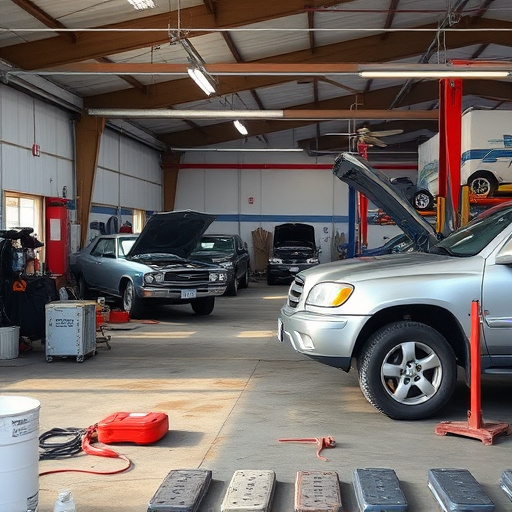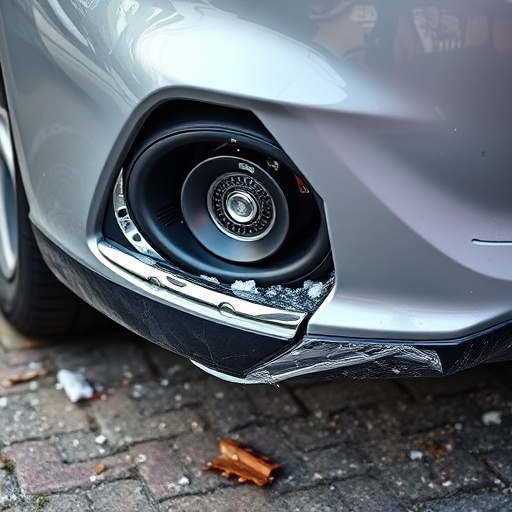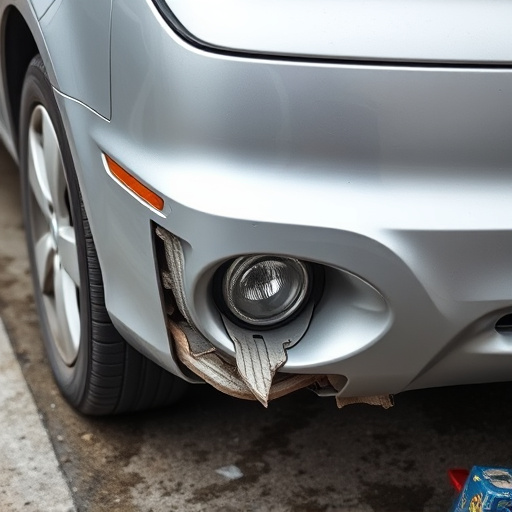Glass replacement certification is crucial for insurance companies managing auto collision repairs, ensuring technicians meet safety and quality standards. This rigorous process involves training and testing, empowering professionals to install high-quality glass precisely. For policyholders, it offers peace of mind and vehicle protection, while insurers benefit from reduced claims costs and a more efficient process, ultimately enhancing customer satisfaction.
In today’s digital era, understanding the nuances of glass replacement certification is crucial for both insurance companies and policyholders. This article delves into the significance of this process, exploring how it benefits all parties involved. We’ll discuss the basics of glass replacement certification, its positive impact on claims processing and customer satisfaction, and why it’s an essential consideration in the insurance landscape. By the end, you’ll grasp the importance of ensuring quality and safety through certified professionals.
- Understanding Glass Replacement Certification: The Basics for Insurance Companies
- Benefits of Certified Glass Replacement for Policyholders and Insurers
- Ensuring Quality and Safety: How Certification Impacts Claims and Customer Satisfaction
Understanding Glass Replacement Certification: The Basics for Insurance Companies

Glass replacement certification is a crucial aspect that insurance companies should consider when dealing with claims involving damaged vehicles. In the context of auto collision repair, this certification guarantees that the glass being installed meets specific safety and quality standards. It involves rigorous training and testing for technicians to ensure they are equipped to handle complex tasks like precision cutting, sealing, and adhering glass to vehicle frames accurately.
This process is vital for maintaining the structural integrity of a vehicle’s body, which is essential in auto repair services. Insurance companies can rest assured that certified technicians will use high-quality materials and follow best practices, reducing the risk of future issues with the replaced glass. Moreover, it aids in the efficient and effective management of claims, ensuring customer satisfaction and minimizing potential disputes related to subpar repairs, commonly seen in vehicle body shops.
Benefits of Certified Glass Replacement for Policyholders and Insurers

For policyholders, certified glass replacement offers peace of mind, ensuring that their vehicles are restored to pre-accident condition using high-quality materials and expert craftsmanship. This certification guarantees precision fitting, superior durability, and adherence to safety standards—all crucial factors in protecting against future damage or incidents.
Insurers benefit from the assurance that certified glass replacement reduces claims frequency and severity. By promoting higher quality repairs, insurers can lower costs associated with auto collision repair and vehicle paint repair, ultimately fostering a more efficient claims process. This, in turn, enhances customer satisfaction by streamlining the entire experience for policyholders involved in accidents, benefiting both parties in the long run.
Ensuring Quality and Safety: How Certification Impacts Claims and Customer Satisfaction

When it comes to glass replacement, especially after an accident or damage, certification matters greatly for insurance companies and their customers alike. Ensuring that auto repair shops and technicians are properly certified in glass replacement is paramount for maintaining safety standards and quality control. This is crucial because cracked or improperly fitted glass can pose significant risks during vehicle operation, from sharp edges to reduced visibility.
Certification programs equip auto bodywork professionals with the necessary skills, knowledge, and experience to handle glass replacement effectively. This directly impacts claims processing and customer satisfaction. Insurance companies benefit from faster, smoother claim settlements as certified technicians ensure accurate repairs that meet safety regulations. Customers, in turn, gain peace of mind knowing their vehicles are restored to pre-accident condition by experts who understand the intricacies of glass dynamics and auto repair services.
In conclusion, embracing glass replacement certification is a strategic move for insurance companies. By prioritizing certified professionals, insurers can mitigate risks, ensure higher quality repairs, and enhance customer satisfaction. This, in turn, leads to reduced claim costs and stronger policyholder trust, making certification a beneficial pillar in the industry’s evolving landscape.














